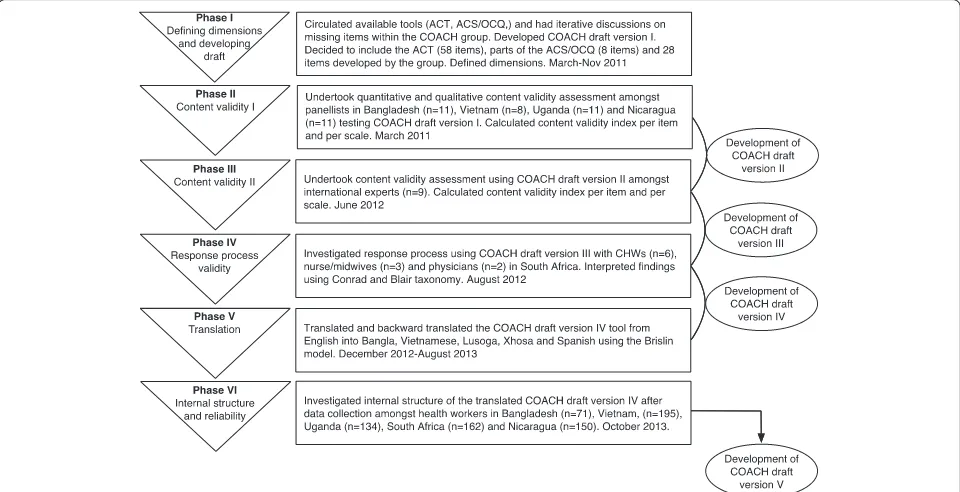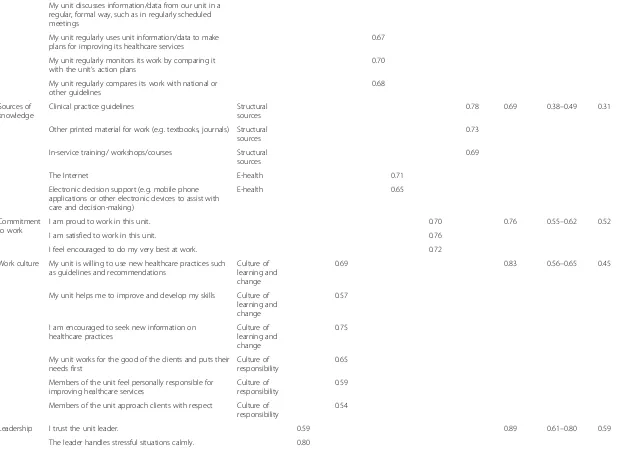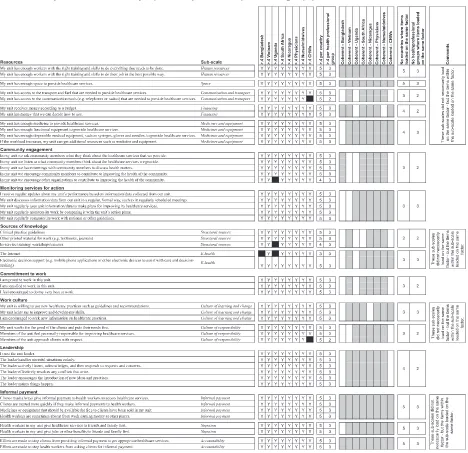Health system context and implementation of evidence-based practices—development and validation of the Context Assessment for Community Health (COACH) tool for low- and middle-income settings
Full text
Figure




Related documents
In a comparison of weaning systems detailing lambs weaned at 24 hours, 30 days or 6 weeks with the combination of milking ewes, the total milk production was greatest for the
As power utilities is the classical most important example for economics, we now study the marginal utility yield curve in affine model with progressive and backward power
Although the study did not evaluate reasons for the relatively poor data quality before introduction of the intervention track- ing software, any of the following problems would
hrigated Canterbury Sheep Farms, N.M. Economics of the Sheep Breeding Operations of the Department of Lands and Survey, A.T.G. Water and Choice in Canterbury, K.L. Economic
This stresses the importance of a careful diagnosis, since definitely diagnosed, but not suspected allergy at the ages 9 and 18 months and 3 and 5 years does predict allergy
of Need Met Not reported Average Award Not reported Need-Based Gift Not reported Need-Based. Self-Help
Corporate leaders can consciously design and build organizational interventions to achieve these goals, but to do so they must think holis- tically about designs incorporating
The crucial difference between the two was that Douglas believed that popular sovereignty would allow slavery to pass away on its own, while Lincoln doubted that slavery would


